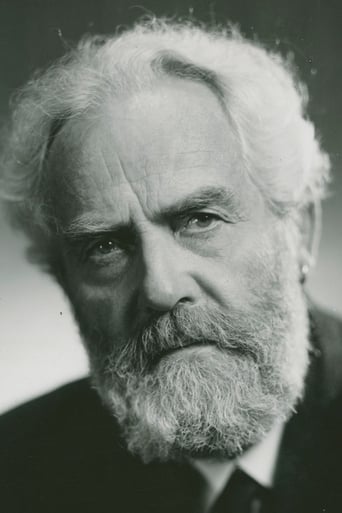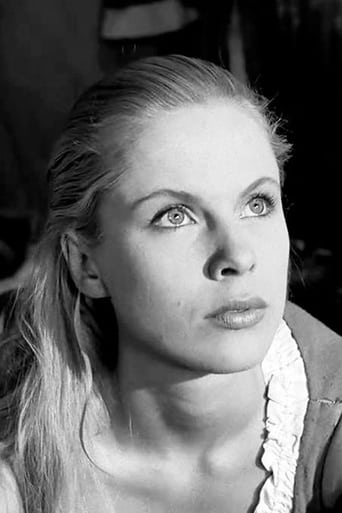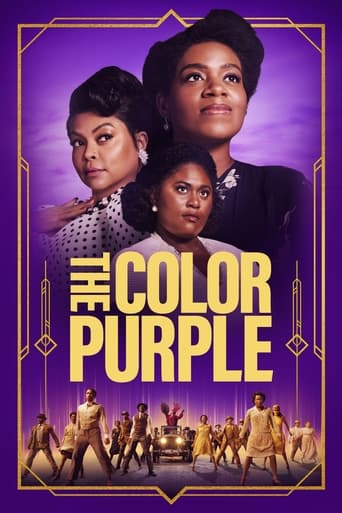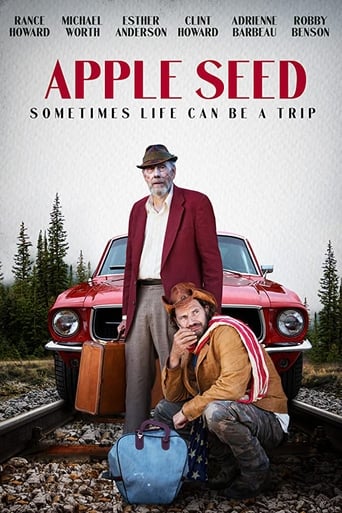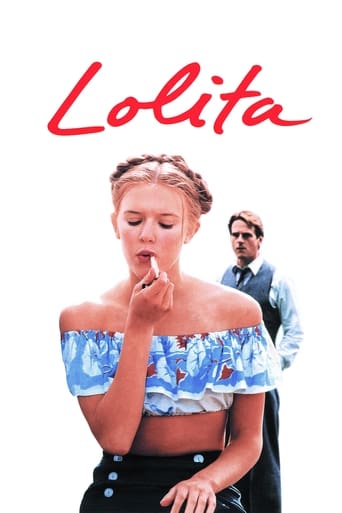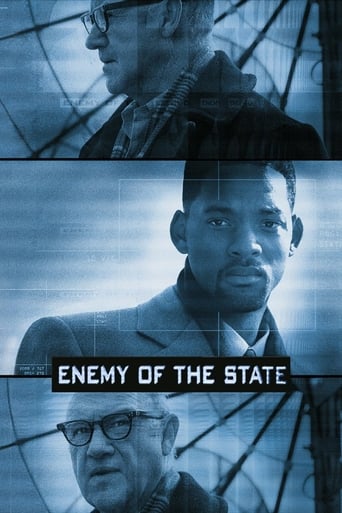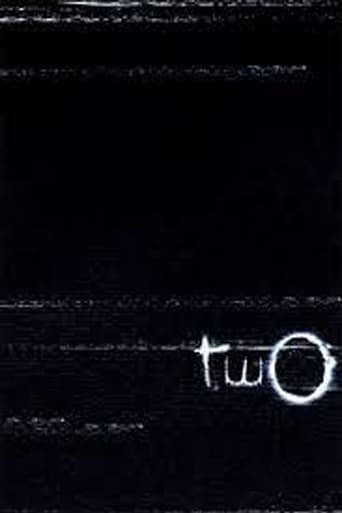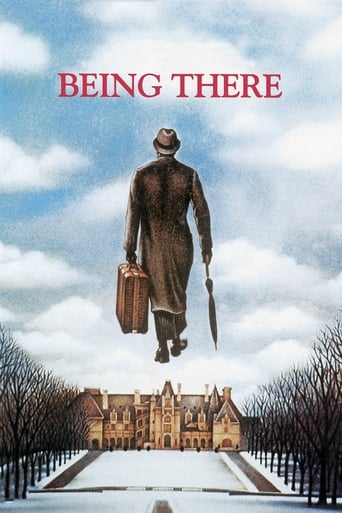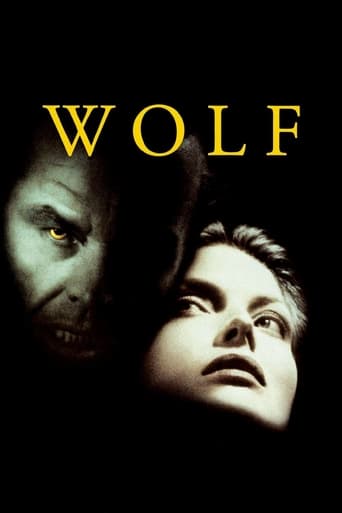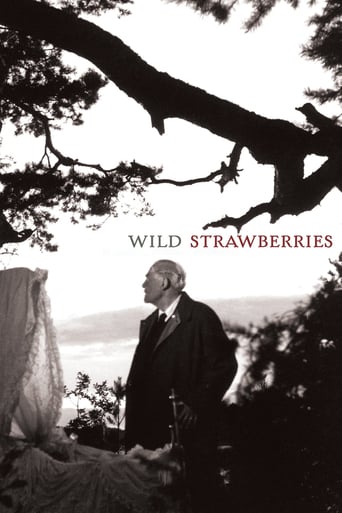
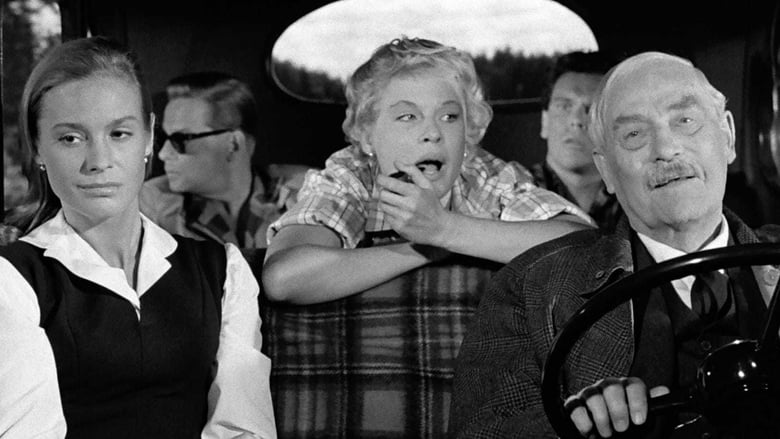
Wild Strawberries (1957)
Crotchety retired doctor Isak Borg travels from Stockholm to Lund, Sweden, with his pregnant and unhappy daughter-in-law, Marianne, in order to receive an honorary degree from his alma mater. Along the way, they encounter a series of hitchhikers, each of whom causes the elderly doctor to muse upon the pleasures and failures of his own life. These include the vivacious young Sara, a dead ringer for the doctor's own first love.
Watch Trailer
Cast


Similar titles
Reviews
Dr. Isak Borg, 78, is a renowned physician and researcher. His life's experiences have left him cold, distant and uncaring. Now he is traveling to be awarded an honorary degree by a university, a reward for his life's work. Driving with his daughter-in-law Marianne, currently estranged from his son Ewald (whose personality seems to be following that of his father's), he finds himself reminiscing about his past, especially his 20s. He has also been having strange dreams, dreams that remind him of the person he has become, and potentially what lies ahead for him.Incredibly thought-provoking and emotional movie. A metaphor for life and what you make of it. As someone who could understand how Isak could get that way, and even endorse how he feels, this was an eye- opening, and potentially life-changing, movie.While many of Bergman's movies are sombre and depressing, this, having started that way, turns it all around, channeling the negativity to find something positive. A very nostalgic and uplifting movie. Also, not that predictable in its positivity. The upliftment sneaks up on you...Wonderful film.
For us seasoned film viewers, a film like "Wild Strawberries" carries some resonance. It invites both a retrospective and introspective look into one's own life with all it's triumphs along with the disappointments, lost loves and unfinished business that are a part of that sometimes undisciplined thing called life. If done honestly, as in the case of Dr. Isak Borg (Victor Sjostrom), the look back may dredge up moments of recrimination and a wish that things had been done differently. Borg's memories are further haunted by strange dreams that summon up things like empty streets, ruined buildings and faceless men; the horse drawn hearse spilling it's coffin to reveal his own corpse is a precursor to a later dream in which a judge pronounces him guilty of incompetence, callous behavior, selfishness and a ruthlessness as cold as ice. Borg begins to see and understand that his behavior throughout life has also infected those very close to him, including a distant son who lives to carry on his father's traits. Through chance encounters with hitchhikers on the way to picking up an honorary degree, and an unplanned reconciliation with his daughter-in-law, Borg seeks redemption for some of those inadequacies before he's called upon to meet his Maker. Though the film closes on an optimistic note with Borg's dream of his father and mother waving to him on a sunlit beach, it's really up to the viewer to decide if the good Doctor has attained peace with his past. His reflective journey may have planted a seed of humanity in the man's heart, just as the picture challenges the viewer to contemplate one's own life and legacy.
This movie takes the audience through life, it makes us reflect on ourselves, it forces to reconsider our path. We see Isak, an old doctor who, on his way of receiving a honorary award, is confronted with his entire life, and the way that life changed him. He realizes that he aid his selfishness with loneliness, and that time took away his joy to live. The characters of Isak's mother, on one side, and Marianne and Evald on the other, remind us that this drama is recurrent in every human life, like a self-repeating prophecy that haunts all generations: Is it worth living? Should we even bother bringing new creatures to this meaningless world? How can we avoid falling into the trap of loneliness eventually?On their trip to Lund, Isak and Marianne pick up two very different groups of people. First, there's Sara, Viktor and Anders; young, happy, and cheerful. They are still innocent and worried about the existence of God and the beauty of art. Then, they pick up a bitter married couple that are constantly arguing with each other. These passengers mirror Isak's stages in life, from his cheerful youth to an already cynical marriage, the path that Marianne and Evald also seem to be taking. It is meaningful, then, that Marianne forces the married couple to leave the car. In the end, what prevails is the desire to live happily.Though, like all Bergman's movies, the plot moves a bit too slowly for modern audiences' taste, this should not overshadow the depth of this movie, so rarely found in today's cinema. Wild Strawberries is an insightful movie that brings us all to the bottom of human existence.
Ingmar Bergman is the quintessential, existential filmmaker. To me, he is the black angel of cinematic death, and please, I mean that in the best way possible. He's most famous for attempting to answer the questions that all of us want answered. What is the meaning of life? What happens when we die? Is there a god? Is there a heaven or a hell? Bergman is always asking these questions in his film, and always, does he find interesting answers and hypothesis formed by these questions. He uses his actors and his framing abilities to help drive home the main idea of these films, and thus, his movies are notoriously not very hard to understand. Most importantly, he has an ability to make us understand the answers, and to help us understand ourselves. Bergman is an introspective filmmaker by definition, and because of that, his films have become so cherished and remembered for being so. In a period slightly before his heyday, no film makes a better example of his unique cinematic mission than "Wild Strawberries""Wild Strawberries" focuses on an elderly professor, Dr. Isak Borg, who lives by himself with his common-law wife in Stockholm. After a lifelong journey of achieving greatness in himself and academia, he has been invited to Lund University to receive an honorary degree. He gets in a car with his daughter-in-law, Marianne, and together they travel to Lund. Through the travel, Isak is haunted by his own thoughts and dreams that have accumulated after years of isolation and reflection. At the not-so-ripe age of 78, Isak want's to understand what led him to this strange point of his life, where he went wrong, and what on Earth will happen next? He is remembered of the place of his childhood, where the wild strawberries grew. A time when he romanced his young, beautiful cousin, Sara, before being stolen from him by his older, arrogant brother Sigfrid. Before going on the trip, he has a vivid, terrible nightmare of being old, as a dead body follows him through a city street and a hearse crashed in front of him, revealing a clone of himself in a casket. Through the ways of the trip, and through the hitchhikers he meets along the way, his mind keeps racing and the dreams of his past and future keep following him. The journey becomes so strenuous and visceral to his memory, that by the time he arrives at his destination, his psyche is entirely cleansed, and he is greeted with the memory of a peaceful fishing trip with his family. What Bergman is doing here is experimenting with time and space, through memory and reflection. His style reminds me of "Hiroshima Mon-Amour", considering that there is no clear pattern between what happens in the moment, and what happens in the past. Bergman is giving us a deconstructed narrative that in essence, gives us a clear indication of the kind of crisis that Isak is going through. As a man that has been through everything and nothing, his mind is racing, much like our own, of scenarios that did and didn't happen. This is quite an interesting introspective device that Bergman uses. He is making movies about people, the exact way that we think about each other. Bergman typically uses characters that wrestle with their own identity, and bravely ask questions that might have no answers. Thus, it doesn't take much interpretation of the audience to understand, because all of the questions and answers are presented on screen. "Wild Strawberries" is a very entertaining, beautiful piece to that effect. The entire time, I was haunted, confused, and rightfully engaged with Isak and the characters he meets. My favorite scene of the film is the nightmare at the beginning. The surrealism of this section is frightening and so wonderfully imaginative. I loved the giant eyeglasses that appeared over his head, as well as the dead man with no face that appears to him in the middle of the street. Bergman was really experimenting with some wonderful visual concepts, especially for the 1950's. I thought the acting, was also very real and interesting to watch. Bergman was always known to be a director for actors, and in this film especially, he makes his actors play these characters as real people, not merely as stage personas. What we get because of that is a real, frightening portrayal of an older man, and seeing that alone is fascinating. In conclusion, "Wild Strawberries" is a dark and interesting classic about the struggle of understanding our fate, and without question, it should regarded as one of the great films of Ingmar Bergman.


